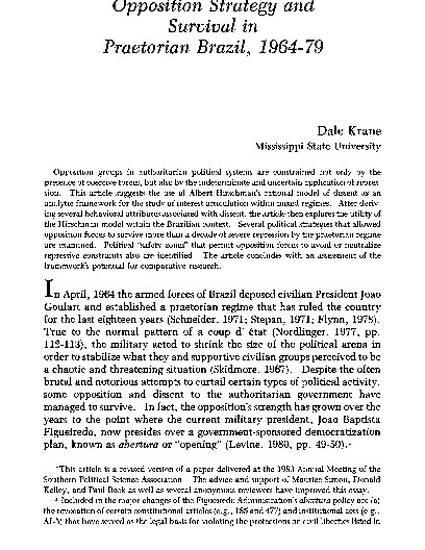
Opposition groups in authoritarian political systems are constrained not only by the presence of coercive forces, but also by the indeterminate and uncertain application of repression. This article suggests the use of Albert Hirschman's rational model of dissent as an analytic framework for the study of interest articulation within mixed regimes. After deriving several behavioral attributes associated with dissent, the article then explores the utility of the Hirschman model within the Brazilian context. Several political strategies that allowed opposition forces to survive more than a decade of severe repression by the praetorian regime are examined. Political "safety zones" that permit opposition forces to avoid or neutralize repressive constraints also are identified. The article concludes with an assessment of the framework's potential for comparative research.
Available at: http://works.bepress.com/dale_krane/47/

Krane, D. (February 1983). Opposition Strategy and Survival in Praetorian Brazil, 1964-79. The Journal of Politics, 45, 1, 28-63. © 1983 Southern Political Science Association. This journal can be found at http://journals.cambridge.org/action/displayJournal?jid=JOP.